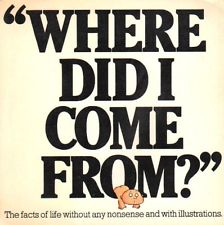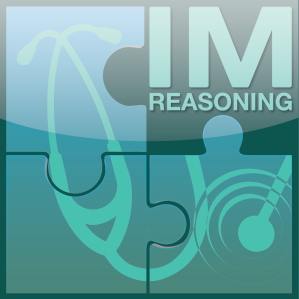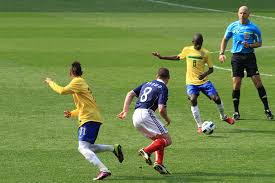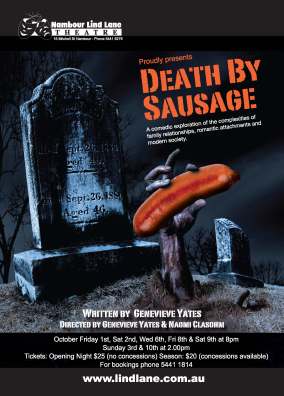 I was asked recently, “So where do OSCE cases come from? Who writes them and how do they get chosen for use in an exam?”
I was asked recently, “So where do OSCE cases come from? Who writes them and how do they get chosen for use in an exam?”
These are not uncommon questions. For many, the life cycle of an OSCE case seems to be a mysterious process, shrouded in secrecy.
It’s time we had the “Where did I come from?” talk…
It starts with a twinkle in an OSCE case writer’s eye, often during a patient consultation. “This could be a good OSCE case,” the case writer muses, and from there, a case is conceived. It’s a long and complicated gestation, however, with no guaranteed delivery at the end.
OSCE case writers are neither a special breed nor an elitist group. They are a diverse mix of practising College Fellows from around the country, who are all experienced RACGP OSCE examiners specially trained in how to write OSCE cases, RACGP style.
Cases are based on real patients seen in the case writer’s own practice. They are not derived from the rare and obscure conditions we all find so interesting, but from common and/or important presentations that competent Australian GPs are expected to be able to manage.
Taking care to de-identify the patient and to ensure that the issues involved are widely applicable to Australian GPs, the case writer creates a first draft using a standard RACGP case writing template. With support and feedback from OSCE case reviewers, this initial draft may require considerable to-ing and fro-ing.
Once the first draft is complete, it gets formally reviewed by an OCSE medical educator (ME) and then road tested. Yep, road tested. Tried out by volunteer GPs who have not previously seen the case to see how it performs – which is not as much fun as taking a new car for a spin, in my opinion. Essentially, these are people willing to do OSCE cases under exam-like conditions. Some may call them dedicated, others may say masochistic, but everyone agrees that they are fulfilling an important role and helping make the OSCE better.
After the road test, the case goes through another round of review before moving to Standardisation. This is when a group of experienced OSCE examiners put its eyes on the case and marking scheme, suggests modifications if necessary, and decides on which aspects of the case (“Key Features”) are the most important. These Key Features are then bolded to assist the OSCE examiners marking the case.
After all that, the case goes into the OSCE pool, vying for selection. Unlike selection for the Australian Olympic Swimming Team which is, I’m guessing, based largely on swimming very fast in the right races, the selection of cases for the OSCE team is nuanced and complicated. It is governed by the Exam Blueprint which takes into consideration many factors such as the General Practice curriculum, the frequency a condition is seen in general practice, and the importance of being able to diagnose and manage said condition. This is why emergency presentations such as myocardial infarction occur more frequently in FRACGP exams than they are seen in a typical general practice. They are uncommon, but you really need to get the diagnosis and management right when you see them.
The “team” of cases chosen for a particular exam needs to be balanced, so that a sufficiently broad spectrum of knowledge and skills is assessed. It may seem from the outside looking in that in some exams there are very similar cases, but even when the condition is the same, the different cases test different aspects, that is, the assessment tasks are different.
An OSCE case cannot rest on its laurels after selection for a particular exam. There is more scrutiny to come: firstly by an OSCE ME (a “fresh eyes” review) followed by the Assessment Panel Chairs (APCs), then the Quality Assurance (QA) examiners and finally the assigned examiners. You would think by this stage there would be nothing left to review, but regardless of how many times a case is reviewed there can still be little typos or omissions which have slipped through the net. Cases requiring last minute adjustments get “green sheets”, on which the changes are outlined for the case’s examiners. Better to be green sheeted then yellow carded, but still, something to be avoided if possible, and with increased pre-exam reviews green sheet changes are getting fewer in number.
Finally the big day arrives and the OSCE case is role played in upwards of 45 rotations in approximately 15 exam centres around the country.
But it is still not over for an OSCE case. Post exam, the examiners and QA examiners provide feedback on the case, and the statisticians work their numerical magic to see how it stacked up. If the case fell outside certain statistical parameters (e.g. discrimination index), it goes through a further review process.
After all that, we thank the case for its service by sticking it into quarantine for several exam cycles.
After being brought out of exile, it is updated, reviewed and road tested again before it is considered for use in another OSCE.
OSCE cases, like doctors, diet fads and mobile phones, don’t last forever. At some point, each case will need to come to terms with being pulled out of the pool. After a bit of rehabilitation, the lucky ones will have a working retirement by being used for examiner training, mock OSCES and the like. Others disappear, remaining only in the memory of those who tackled them on a long ago OSCE game day….
Such is the life journey of an OSCE case.
(First published in RACGP Queensland’s Examiners’ Newsletter, August 2016)


 I don’t often give unsolicited plugs for FOAMed resources but felt I needed to share my delight at having recently discovered the IMReasoning podcast. It is the creation of two internal medicine physicians, Dr. Art Nahill and Dr. Nic Szecket, working in Auckland and is described as “Conversations to inspire critical thinking in clinical medicine and education”. I have binge listened my way through most of the episodes and thoroughly enjoyed them all. They have found the sweet spot – demonstrating a near perfect balance between the informative and authoritative, and the entertaining and self-deprecating.
I don’t often give unsolicited plugs for FOAMed resources but felt I needed to share my delight at having recently discovered the IMReasoning podcast. It is the creation of two internal medicine physicians, Dr. Art Nahill and Dr. Nic Szecket, working in Auckland and is described as “Conversations to inspire critical thinking in clinical medicine and education”. I have binge listened my way through most of the episodes and thoroughly enjoyed them all. They have found the sweet spot – demonstrating a near perfect balance between the informative and authoritative, and the entertaining and self-deprecating. In soccer, research shows that the way to maximize wins is to improve the worst players. Success typically comes to those teams who have better 9th, 10th, and 11th players rather than those who have the best player. It is argued that this is due to the nature of the sport, being that one player typically cannot create opportunities alone. Thus it makes sense to invest in making the least talented players better. Soccer is a weak-link sport for this reason.
In soccer, research shows that the way to maximize wins is to improve the worst players. Success typically comes to those teams who have better 9th, 10th, and 11th players rather than those who have the best player. It is argued that this is due to the nature of the sport, being that one player typically cannot create opportunities alone. Thus it makes sense to invest in making the least talented players better. Soccer is a weak-link sport for this reason. Alternatively, basketball is a strong-link sport. Typically, the team with the best player wins. It’s a star-driven sport because one player can have an outsized impact on the game despite also having the worst player on the floor as a teammate. It is nearly impossible to prevent a great player from getting the ball, and/or helping his/her team score.
Alternatively, basketball is a strong-link sport. Typically, the team with the best player wins. It’s a star-driven sport because one player can have an outsized impact on the game despite also having the worst player on the floor as a teammate. It is nearly impossible to prevent a great player from getting the ball, and/or helping his/her team score.

 What’s old is new again. Hipster beards are so in, they’re out, and where we used to simply cease medications—we now deprescribe them.
What’s old is new again. Hipster beards are so in, they’re out, and where we used to simply cease medications—we now deprescribe them.
 I was asked recently, “So where do OSCE cases come from? Who writes them and how do they get chosen for use in an exam?”
I was asked recently, “So where do OSCE cases come from? Who writes them and how do they get chosen for use in an exam?”